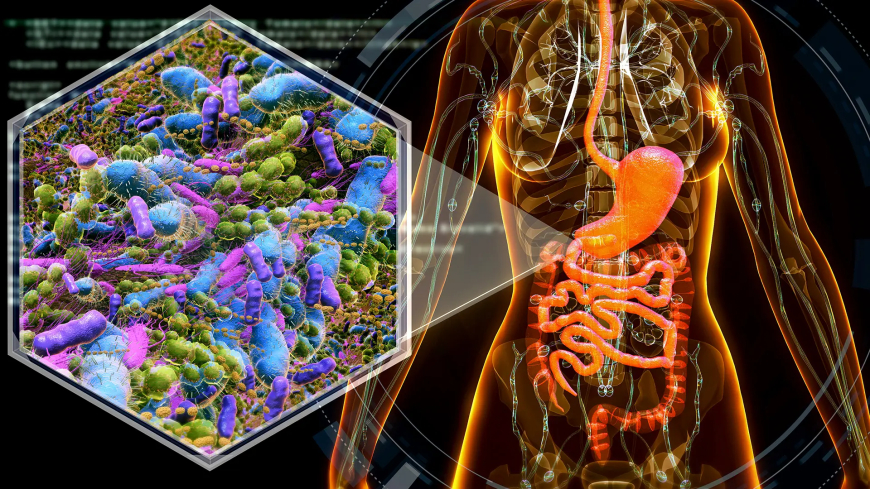Unlocking the Power of Your Gut: How a Healthy Microbiome Transforms Your Well-Being
Discover how your gut microbiome affects digestion, immunity, and mental health. Learn natural ways to improve gut bacteria with diet and lifestyle changes.

Your gut is more than just a digestive organ—it’s a powerful ecosystem influencing everything from immunity to mental health. The gut microbiome, a vast network of trillions of bacteria, fungi, and other microbes, plays a crucial role in overall well-being. When balanced, it supports digestion, boosts immunity, regulates mood, and even affects weight management. However, poor diet, stress, and lifestyle choices can disrupt this balance, leading to health problems.
In this article, we explore the fascinating role of the gut microbiome in health and share scientifically-backed strategies to improve gut bacteria naturally.
Why Is the Gut Microbiome So Important?
The gut microbiome is involved in several critical functions, including:
1. Digestive Health
Good bacteria break down food, absorb nutrients, and help prevent digestive disorders like bloating, constipation, and irritable bowel syndrome (IBS). An imbalance, known as dysbiosis, can contribute to gut issues and inflammation.
2. Immune System Regulation
Around 70% of the immune system resides in the gut. Beneficial bacteria help train immune cells to distinguish between harmful invaders and friendly microbes, reducing the risk of infections and autoimmune diseases.
3. Mental Health and Mood Regulation
The gut-brain axis is a direct communication pathway between your gut and brain. Beneficial bacteria produce neurotransmitters like serotonin and dopamine, which influence mood, stress levels, and cognitive function. Studies suggest that an imbalanced microbiome may contribute to anxiety and depression.
4. Weight Management and Metabolism
Certain gut bacteria influence how the body processes food and stores fat. A diverse microbiome can support a healthy metabolism, while an imbalance is linked to obesity and metabolic disorders.
5. Skin Health
Your gut health directly affects your skin. Conditions like acne, eczema, and psoriasis may be linked to gut dysbiosis. A healthy microbiome helps reduce inflammation, leading to clearer skin.
How to Improve Your Gut Microbiome Naturally
Improving gut health is not about quick fixes but consistent, long-term lifestyle changes. Here’s how you can nourish your microbiome naturally:
1. Eat More Fiber-Rich Foods
Fiber acts as food for beneficial bacteria. High-fiber foods like fruits, vegetables, legumes, and whole grains promote bacterial diversity. Some of the best options include:
- Apples
- Bananas
- Oats
- Lentils
- Leafy greens
2. Include Fermented Foods in Your Diet
Fermented foods are rich in probiotics—live bacteria that help balance the gut microbiome. Consider adding:
- Yogurt with live cultures
- Kefir
- Sauerkraut
- Kimchi
- Miso
- Tempeh
3. Avoid Artificial Sweeteners and Processed Foods
Studies show that artificial sweeteners like aspartame and sucralose may negatively impact gut bacteria and lead to glucose intolerance. Processed foods, high in additives and preservatives, can also contribute to inflammation.
4. Take a Quality Probiotic Supplement
While whole foods should be your primary source of probiotics, supplements can help replenish gut bacteria, especially after antibiotic use. Look for a probiotic with multiple strains of beneficial bacteria like Lactobacillus and Bifidobacterium.
5. Manage Stress Levels
Chronic stress disrupts the gut microbiome by increasing inflammation and reducing beneficial bacteria. Try:
- Meditation and deep breathing exercises
- Yoga
- Spending time in nature
- Getting enough sleep
6. Stay Hydrated
Water helps maintain a balanced microbiome by supporting digestion and nutrient absorption. Aim for at least 8 glasses of water per day, and consider herbal teas like ginger or peppermint to support gut health.
7. Exercise Regularly
Physical activity enhances gut diversity and encourages the growth of beneficial bacteria. Even moderate exercise, like walking for 30 minutes a day, can have a positive impact.
8. Get Enough Sleep
Poor sleep can alter gut bacteria, leading to digestive issues and increased stress. Aim for 7-9 hours of quality sleep per night to support a thriving microbiome.
9. Eat More Prebiotic Foods
Prebiotics are fibers that feed good bacteria. Some excellent sources include:
- Garlic
- Onions
- Asparagus
- Flaxseeds
- Chicory root
The Future of Gut Health: What Science Says
Emerging research is uncovering exciting links between the gut microbiome and conditions such as diabetes, autoimmune diseases, and even neurological disorders like Parkinson’s. Scientists are exploring personalized probiotics and microbiome-based therapies as potential solutions for chronic health issues.
For more in-depth research on the microbiome, check out Harvard Health’s insights on gut health and the latest findings from the National Institutes of Health on gut bacteria’s role in disease prevention.
Conclusion
Your gut microbiome is the foundation of your overall health. By making conscious dietary and lifestyle changes—like eating fiber-rich and fermented foods, reducing stress, and staying active—you can create a thriving gut ecosystem.
A balanced microbiome means better digestion, stronger immunity, improved mood, and even healthier skin. Start prioritizing your gut health today, and experience the profound benefits it has on your entire well-being.
For more expert-backed wellness tips, explore WellnessWire and stay updated with the latest health trends!
What's Your Reaction?
 Like
0
Like
0
 Dislike
0
Dislike
0
 Love
0
Love
0
 Funny
0
Funny
0
 Angry
0
Angry
0
 Sad
0
Sad
0
 Wow
0
Wow
0



















































